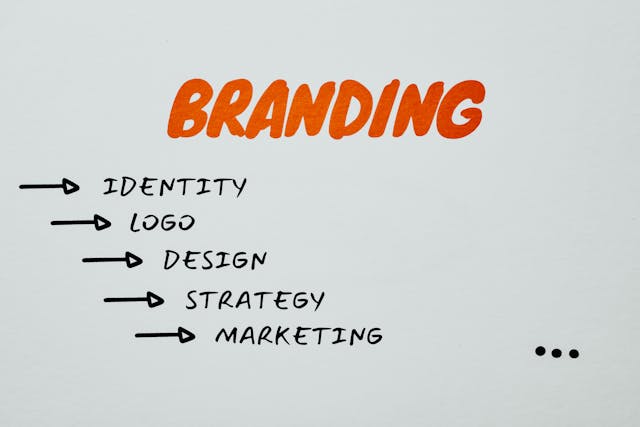Key Takeaways
- Brand management tools in 2025 are increasingly driven by AI, automation, and real-time analytics for enhanced brand consistency and performance.
- Businesses using centralized brand platforms experience stronger customer loyalty, improved collaboration, and faster go-to-market strategies.
- The latest data highlights a significant rise in global adoption of scalable brand management solutions across industries and digital channels.
In the digital-first business landscape of 2025, brand perception has become one of the most valuable and strategic assets a company can possess.
As consumers grow increasingly selective and brand-savvy, the need for businesses to maintain consistency, authenticity, and engagement across every touchpoint has intensified.
In response, brand management tools have evolved into indispensable solutions that not only preserve brand integrity but also drive customer loyalty, increase visibility, and enhance operational efficiency.

From automated brand asset libraries and centralized content platforms to AI-powered sentiment analysis and cross-channel campaign management, these tools are redefining how companies build, monitor, and grow their brands in real time.
The modern consumer journey is dynamic, multi-platform, and data-driven, requiring brands to be equally agile in their management strategies.
Organizations across industries are leveraging brand management platforms to maintain visual consistency, align messaging across departments, and ensure compliance with branding guidelines.
These platforms are no longer optional – they are essential technologies in a competitive marketplace where brand equity translates directly into market share and revenue growth.
As the brand management software market continues its upward trajectory, the latest statistics and emerging trends in 2025 reveal a shift towards greater automation, integration with AI and machine learning, and deeper analytics.
Businesses are not only using these tools to manage assets and brand identity but also to measure brand performance, track audience sentiment, and respond rapidly to market changes.
With the rise of omnichannel marketing, remote collaboration, and global brand presence, these platforms offer robust functionalities that streamline internal workflows while enhancing the external impact of branding initiatives.
This blog will delve into the top 20 most important statistics, data points, and trends surrounding brand management tools in 2025.
Whether you’re a brand manager, marketing executive, digital strategist, or entrepreneur, this comprehensive overview will equip you with the insights needed to understand the evolving landscape of brand management technology.
From adoption rates and market growth projections to user behavior and technology advancements, the following information offers a data-backed perspective on how organizations are harnessing brand management solutions to stay relevant, memorable, and trusted in an increasingly competitive and digitally connected world.
Before we venture further into this article, we would like to share who we are and what we do.
About 9cv9
9cv9 is a business tech startup based in Singapore and Asia, with a strong presence all over the world.
With over nine years of startup and business experience, and being highly involved in connecting with thousands of companies and startups, the 9cv9 team has listed some important learning points in this overview of the Top 20 Brand Management Tools Statistics, Data & Trends.
If your company needs recruitment and headhunting services to hire top-quality employees, you can use 9cv9 headhunting and recruitment services to hire top talents and candidates. Find out more here, or send over an email to [email protected].
Or just post 1 free job posting here at 9cv9 Hiring Portal in under 10 minutes.
Top 20 Brand Management Tools Statistics, Data & Trends
- In 2024, the global market size for brand management software was estimated to be approximately USD 778.85 million, reflecting the growing demand for digital solutions that help companies maintain consistent brand identities across multiple channels.
- Market analysts project that by the year 2030, the global brand management software market will expand significantly, reaching an estimated valuation of USD 1,210.57 million, driven by increasing adoption of AI-powered tools and cloud-based platforms.
- The compound annual growth rate (CAGR) for the brand management software market between 2024 and 2030 is forecasted to be 7.62%, indicating steady and robust growth fueled by digital transformation initiatives in marketing departments worldwide.
- According to a 2024 survey of marketing professionals, 56% of respondents reported feeling overwhelmed or burned out due to the complexity and volume of digital marketing tools they are required to manage, highlighting the need for more integrated brand management solutions.
- Kontentino, a popular social media brand management tool, currently supports scheduling and publishing content across more than six major social media platforms, including Instagram, Facebook, LinkedIn, X (formerly Twitter), Pinterest, and TikTok, enabling marketers to streamline their workflows.
- As of early 2025, Kontentino has received an average user rating of 4.7 out of 5 stars, based on 189 verified customer reviews on GetApp, reflecting high user satisfaction with its ease of use and feature set.
- Brand24’s social listening platform monitors over 25 million online sources in real-time, including social media channels, news websites, blogs, forums, and podcasts, providing comprehensive brand mention tracking for businesses.
- The sentiment analysis feature of Brand24’s tool has been tested to achieve approximately 85% accuracy in correctly classifying online mentions as positive, negative, or neutral, which helps brands better understand public perception.
- Mailchimp’s AI-powered email marketing capabilities have been shown to increase campaign open rates by up to 14%, thanks to predictive analytics and personalized content recommendations that improve audience engagement.
- In 2025, at least nine leading brand management tools have been identified as integrating artificial intelligence technologies such as machine learning and natural language processing to enhance automation, customization, and data-driven decision-making.
- monday.com, a widely used project and brand management platform, reported having over 152,000 organizations worldwide using its software as of 2024, demonstrating its popularity among teams seeking to improve collaboration and workflow efficiency.
- Canva, a leading design and brand management tool, boasts more than 100 million monthly active users as of 2024, including major brands such as Skyscanner and Reddit, who rely on it for creating consistent and on-brand visual content.
- A 2024 survey conducted by Statista found that 52% of marketers experience notification fatigue, which is the feeling of being overwhelmed by constant alerts and updates from multiple marketing and brand management tools.
- After adopting Brand24’s media monitoring tool, companies have reported an average 30% increase in the volume of brand mentions tracked, which helps improve their share of voice and overall brand visibility in the market.
- Businesses using BrandMaster for digital asset and brand management have experienced a 40% reduction in the time spent on manual tasks related to organizing and distributing brand assets, significantly improving operational efficiency.
- ReportGarden’s marketing analytics platform provides ROI tracking with an accuracy rate of approximately 95% when correlating advertising spend to engagement metrics, enabling agencies to demonstrate clear marketing impact to clients.
- According to a 2024 survey of marketing agencies, 68% reported using brand management tools specifically for competitor analysis, leveraging these platforms to monitor competitor mentions, sentiment, and campaign performance.
- Marketers utilizing Mailchimp’s advanced segmentation features have seen an average increase of 20% in campaign conversion rates, as targeted messaging improves relevance and customer engagement.
- Frontify, a brand management and digital asset platform, serves over 1,000 global companies as of 2024, providing scalable solutions that help large marketing teams maintain brand consistency across multiple regions and channels.
- Gartner’s 2025 market forecast indicates that the demand for brand management tools is growing at a rate of 15% year-over-year, driven by the increasing complexity of brand ecosystems and the need for integrated digital solutions.
Conclusion
As we conclude this in-depth exploration of the top 20 brand management tools statistics, data, and trends in 2025, it is clear that the brand management landscape has undergone significant transformation. The convergence of technology, data intelligence, and customer-centric strategies has propelled brand management tools to the forefront of modern business operations. No longer confined to static brand guidelines or disconnected digital asset libraries, these tools now serve as dynamic platforms that drive brand consistency, enhance team collaboration, and deliver real-time insights into audience perceptions and brand health.
The statistics and trends discussed throughout this blog highlight a pivotal shift in how organizations approach brand governance in the digital age. From the increasing adoption of AI-powered automation and cloud-based brand hubs to the growing emphasis on cross-functional brand alignment and performance tracking, businesses are investing more than ever in platforms that streamline and secure their brand identity. The data reveals a strong correlation between effective brand management and improved business outcomes, such as higher customer trust, better employee alignment, stronger market positioning, and accelerated growth.
Moreover, the rising demand for omnichannel presence and global branding has fueled the need for scalable, centralized solutions that ensure brand consistency across markets, languages, and platforms. This is especially crucial as companies expand internationally, adopt hybrid work models, and navigate a highly competitive digital ecosystem. The tools that offer integrated analytics, seamless user interfaces, real-time collaboration, and AI-driven personalization are emerging as top choices among forward-thinking organizations aiming to future-proof their brand.
For marketers, brand managers, and business leaders, the insights provided by 2025’s latest brand management statistics and trends serve as a critical guidepost. They underline the importance of investing in platforms that not only support internal brand processes but also deliver measurable external impact. As consumer expectations evolve and technology continues to advance, staying ahead in branding requires more than creative excellence—it demands data-informed decisions, strategic tool adoption, and a commitment to continuous improvement.
In summary, the brand management tools market is poised for sustained growth, innovation, and disruption in the years ahead. Companies that proactively embrace the latest tools and adapt to emerging trends will not only safeguard their brand identity but also strengthen customer relationships, build lasting brand equity, and maintain a competitive edge in an increasingly saturated marketplace. By leveraging the insights highlighted in this report, businesses can make smarter, more strategic branding decisions that resonate in 2025 and beyond.
If you find this article useful, why not share it with your hiring manager and C-level suite friends and also leave a nice comment below?
We, at the 9cv9 Research Team, strive to bring the latest and most meaningful data, guides, and statistics to your doorstep.
To get access to top-quality guides, click over to 9cv9 Blog.
People Also Ask
What are brand management tools?
Brand management tools are software platforms that help businesses maintain brand consistency, manage assets, monitor performance, and streamline brand-related processes across various channels.
Why are brand management tools important in 2025?
In 2025, brand management tools are vital for maintaining brand consistency, enhancing digital presence, and leveraging data-driven insights to engage customers more effectively.
How have brand management tools evolved in 2025?
They now include AI-powered analytics, real-time collaboration features, centralized brand hubs, and integration with digital marketing platforms for seamless brand control.
What is the role of AI in brand management tools?
AI helps automate tasks like brand sentiment analysis, content optimization, and asset organization, making brand management more efficient and data-driven.
What trends are shaping brand management tools in 2025?
Key trends include AI integration, cloud-based collaboration, omnichannel brand governance, real-time analytics, and personalized branding at scale.
What are the benefits of using brand management tools?
They improve brand consistency, accelerate content delivery, enable cross-team collaboration, protect brand integrity, and provide measurable insights.
Which industries use brand management tools most in 2025?
Retail, technology, healthcare, finance, and media are leading adopters, using these tools to ensure unified branding across digital and physical touchpoints.
What features should a top brand management tool have?
Must-have features include digital asset management, brand guidelines, analytics dashboards, collaboration tools, and integration with marketing platforms.
How do brand management tools support marketing teams?
They provide centralized access to brand assets, automate approval workflows, and ensure brand-aligned campaigns across all channels.
Are brand management tools suitable for small businesses?
Yes, many platforms offer scalable solutions tailored to small and mid-sized businesses looking to professionalize their branding and content delivery.
How do brand management tools improve collaboration?
They offer real-time collaboration, role-based access, and centralized workflows, allowing teams to work seamlessly on brand projects from anywhere.
What is digital asset management in brand tools?
It refers to the storage, organization, and retrieval of brand-related assets like logos, images, videos, and documents within a secure, searchable platform.
Can brand management tools track brand performance?
Yes, they include analytics that track brand visibility, asset usage, audience engagement, and sentiment across digital platforms.
How does cloud technology impact brand management tools?
Cloud-based tools allow remote access, scalable storage, real-time updates, and seamless integration across global teams and marketing platforms.
What role does automation play in brand management?
Automation streamlines repetitive tasks such as content approvals, asset tagging, and compliance checks, saving time and reducing human error.
How do brand management tools support global brands?
They enable multi-language support, localization features, and consistent branding across regions, ensuring global compliance and brand alignment.
What’s the expected market growth of brand management tools in 2025?
The market is projected to grow significantly due to increased digital transformation, AI integration, and demand for brand consistency at scale.
Do brand management tools integrate with other software?
Yes, most tools integrate with CRMs, CMSs, social media platforms, project management tools, and analytics software for streamlined workflows.
What is brand governance in brand management tools?
Brand governance involves setting rules and standards within the tool to maintain consistent voice, visual identity, and messaging across all channels.
How do brand tools improve customer experience?
They ensure consistent and engaging brand messaging, faster content delivery, and personalized experiences across customer touchpoints.
What’s the connection between brand equity and these tools?
Strong brand management tools help protect and grow brand equity by ensuring every interaction aligns with brand values and visual identity.
How are KPIs tracked in brand management tools?
Most platforms offer dashboards to track KPIs such as brand reach, asset usage, campaign performance, and team productivity in real time.
What security features do brand management tools offer?
They provide secure cloud storage, user access controls, encryption, and audit trails to protect brand assets and sensitive information.
How often should a company update its brand assets?
Regularly—especially when launching new campaigns, rebranding, or scaling globally. Tools help manage and distribute the latest assets efficiently.
What is the ROI of using brand management tools?
Higher ROI is achieved through improved brand consistency, faster campaign deployment, better asset reuse, and data-driven branding strategies.
What are examples of top brand management tools in 2025?
Examples include Frontify, Bynder, Brandfolder, Lucidpress, and Canva for Teams, all offering robust solutions tailored to modern branding needs.
Can brand management tools help with rebranding?
Yes, they simplify the rebranding process by centralizing new assets, updating guidelines, and ensuring consistent rollout across all channels.
What is the difference between brand management and marketing tools?
Brand tools focus on brand integrity, consistency, and asset governance, while marketing tools focus on promotions, campaigns, and customer acquisition.
How can brand management tools enhance team productivity?
They reduce duplication, streamline communication, automate workflows, and provide quick access to approved assets and guidelines.
What is the future of brand management tools beyond 2025?
Future tools will likely include deeper AI integration, predictive brand analytics, immersive brand experiences through AR/VR, and smarter automation.
Sources
- 360iResearch Market Report 2024
- HubSpot Marketing Statistics 2024
- Kontentino Official Website
- GetApp Kontentino Reviews
- Brand24 Official Website
- Brand24 Blog
- Mailchimp AI Features
- 9cv9 Blog 2025
- monday.com About Page
- Canva Press Release
- Statista Marketing Fatigue Survey 2024
- Brand24 Case Studies
- BrandMaster Product Sheet
- ReportGarden Features
- Agency Analytics Survey 2024
- Mailchimp Case Studies
- Frontify Customers
- Gartner Market Forecast 2025






























![Writing A Good CV [6 Tips To Improve Your CV] 6 Tips To Improve Your CV](https://blog.9cv9.com/wp-content/uploads/2020/06/2020-06-02-2-100x70.png)


